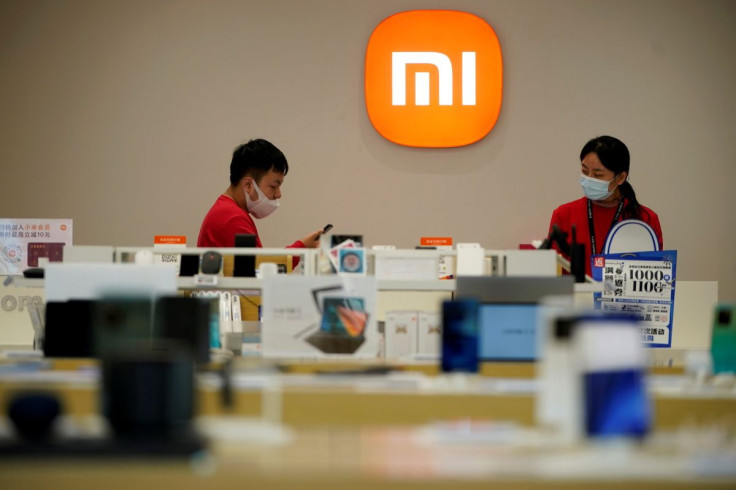India-China Trade War Takes A New Turn With Raids On Xiaomi

China deeply plays a big role in global trade, but the Asian Communist nation has not undergone a full-fledged institutional convergence with global trade norms. Thus, the country's partial assimilation causes troubles for its firms in democratic countries like India and U.S.
On April 30, Xiaomi, which occupied the third global position in terms of smartphone shipments in the fourth quarter of 2021 and whose products are available in more than 100 countries, bumped into trouble in India.
India has accused Xiaomi of breaching the foreign exchange laws of the country, forcing Indian Enforcement Directorate (ED), the country's financial investigation agency, to seize the company's assets in the country on April 30.
"ED has seized Rs.5551.27 crore ($725 million ) of M/s Xiaomi Technology India Private Limited lying in the bank accounts under the provisions of Foreign Exchange Management Act, 1999 in connection with the illegal outward remittances made by the company," the Indian agency said in its official Twitter account.
India's financial crime-fighting agency said it was monitoring Xiaomi since December 2021 and found that the Chinese firm remitted funds to three foreign-based entities in the guise of royalty payments.
The agency further said that amount was remitted on the instructions of the Chinese parent group of Xiaomi; and these three foreign entities to whom the money was transferred have not rendered any service to Xiaomi India, the local arm of the Chinese firm which is now the world's third-biggest smartphone manufacturer.
Despite emerging as a household name in India, Chinese smartphone makers are struggling to do business due to political tensions following the Indo-China border clash in 2020 and partly because of U.S.-led hostility toward Chinese firms.
The Chinese firm faced the wrath of the Indian authorities as the country's smartphone market size is expected to grow with a CAGR of 10.5 percent to reach $281 billion by 2028 which was valued at $139 billion in 2021.
The Fortune Global 500 Chinese firm has been facing the ire of the Indian government despite being the market leader in smartphones in the South Asian country.
Xiaomi was India's leading smartphone seller in 2021 with a 24 percent market share and South Korea's Samsung occupied the second spot with a 19 percent share.
The Indian government, which has been keeping a close tab on incoming investments from China largely due to cross-border tensions, also accused Xiaomi of providing misleading information to the banks while sending the money abroad.
In an official statement on April 30, Xiaomi, which is a listed company on the Hong Kong stock exchange, has denied the Indian government's allegations.
"These royalty payments that Xiaomi India made were for the in-licensed technologies and IPs used in our Indian version products. It is a legitimate commercial arrangement for Xiaomi India to make such royalty payments."
"As a brand committed to India, all our operations are firmly compliant with local laws and regulations," the statement said.
The company also said that it was working closely with the government to "clarify any misunderstandings."
Xiaomi Technology India Private Limited, also called Xiaomi India, sells mobile phones in the country under the brand name MI. Xiaomi, which kickstarted its India operations in 2014, started remitting money the next year, according to the Indian government.
The raids were conducted under the provisions of the Foreign Exchange Management Act, 1999 (FEMA) for the alleged illegal remittances by the Chinese firm in February this year.
At the beginning of April, the ED grilled the global vice president of the group, Manu Kumar Jain, who is now based in Dubai, at the agency's office in the southern Indian city of Bengaluru.
Jain, the former India head of Xiaomi, was asked to provide details of foreign funding, shareholding patterns, financial statements, and information on key executives running the business.
In December 2021, India's tax department conducted raids on Xiaomi and Oppo, another Chinese smartphone dealer that has already made its presence felt in the country, and Huawei, the Chinese multinational technology corporation that faced the ire of the Trump administration in 2019 and was blacklisted, based on intelligence inputs on several violations.
Though India and China, which have fought two wars, withdrew troops from some sites, all is not well on the 3488 km border between two Asian superpowers who are also the world's most populous countries.
India banned more than 200 apps, many of which were Chinese including the popular video platform TikTok, in 2020.
Though Xiaomi has a limited presence in the U.S., it was one of the several Chinese companies that were blacklisted in the final days of the Trump administration due to alleged links with the nation's military. The ban on Xiaomi was later removed by the U.S. government on May 25, 2021.
In September last year, Lithuania's government advised its nationals to keep away from Xiaomi smartphones after a new report found that they had major built-in censorship capabilities.
Lithuania's National Cyber Security Centre said Xiaomi smartphones were able to censor phrases such as "Free Tibet," and "Long live Taiwan independence" with the help of apps pre-installed on the phone.
Lithuania's relations with China were strained after the Baltic nation allowed Taiwan to open a de-facto embassy in its capital.
It seems that Xiaomi needs to excel in tricks of the trade of democratic nations.
























